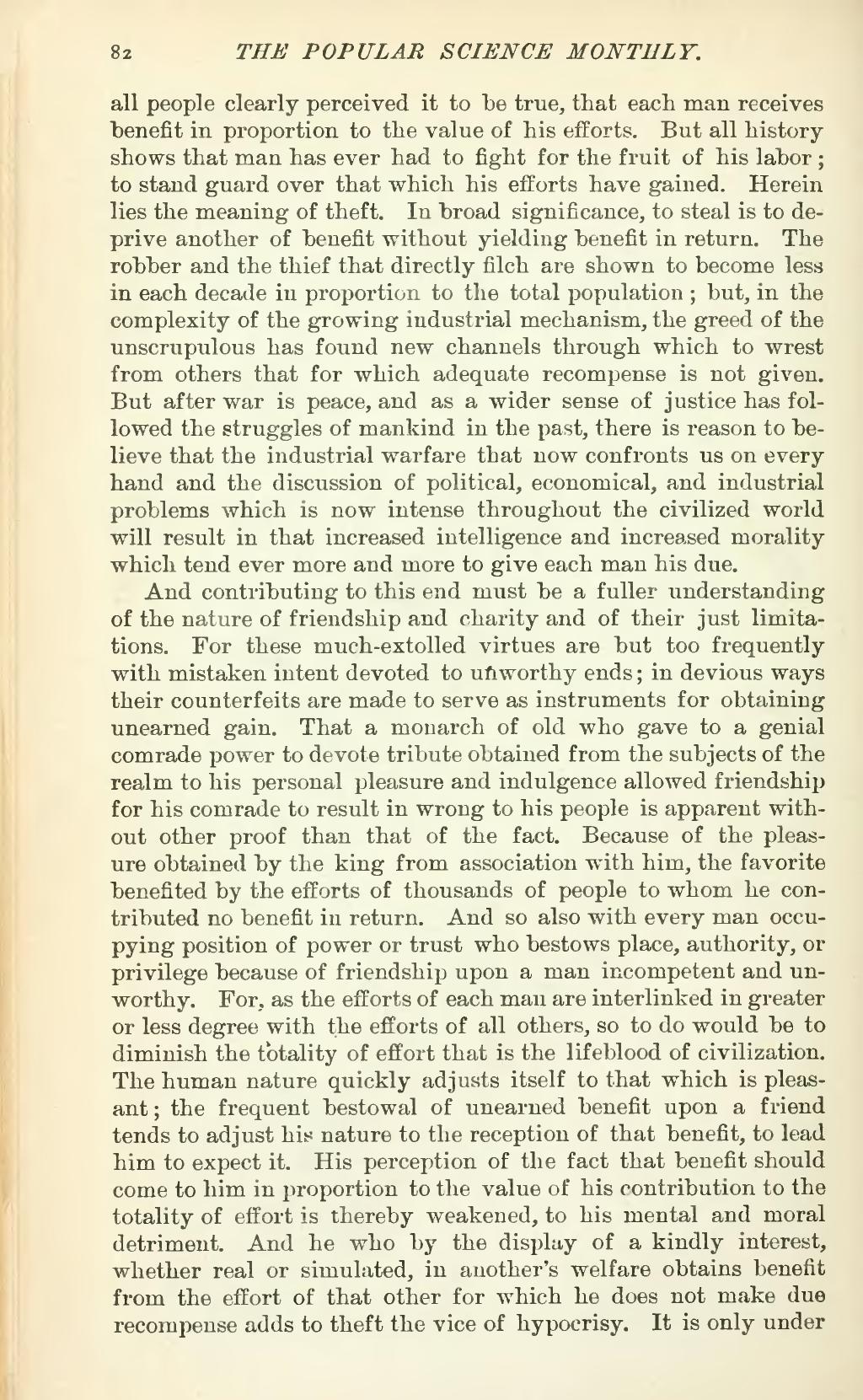all people clearly perceived it to be true, that each man receives benefit in proportion to the value of his efforts. But all history shows that man has ever had to fight for the fruit of his labor; to stand guard over that which his efforts have gained. Herein lies the meaning of theft. In broad significance, to steal is to deprive another of benefit without yielding benefit in return. The robber and the thief that directly filch are shown to become less in each decade in proportion to the total population; but, in the complexity of the growing industrial mechanism, the greed of the unscrupulous has found new channels through which to wrest from others that for which adequate recompense is not given. But after war is peace, and as a wider sense of justice has followed the struggles of mankind in the past, there is reason to believe that the industrial warfare that now confronts us on every hand and the discussion of political, economical, and industrial problems which is now intense throughout the civilized world will result in that increased intelligence and increased morality which tend ever more and more to give each man his due.
And contributing to this end must be a fuller understanding of the nature of friendship and charity and of their just limitations. For these much-extolled virtues are but too frequently with mistaken intent devoted to unworthy ends; in devious ways their counterfeits are made to serve as instruments for obtaining unearned gain. That a monarch of old who gave to a genial comrade power to devote tribute obtained from the subjects of the realm to his personal pleasure and indulgence allowed friendship for his comrade to result in wrong to his people is apparent without other proof than that of the fact. Because of the pleasure obtained by the king from association with him, the favorite benefited by the efforts of thousands of people to whom he contributed no benefit in return. And so also with every man occupying position of power or trust who bestows place, authority, or privilege because of friendship upon a man incompetent and unworthy. For, as the efforts of each man are interlinked in greater or less degree with the efforts of all others, so to do would be to diminish the totality of effort that is the lifeblood of civilization. The human nature quickly adjusts itself to that which is pleasant; the frequent bestowal of unearned benefit upon a friend tends to adjust his nature to the reception of that benefit, to lead him to expect it. His perception of the fact that benefit should come to him in proportion to the value of his contribution to the totality of effort is thereby weakened, to his mental and moral detriment. And he who by the display of a kindly interest, whether real or simulated, in another's welfare obtains benefit from the effort of that other for which he does not make due recompense adds to theft the vice of hypocrisy. It is only under
